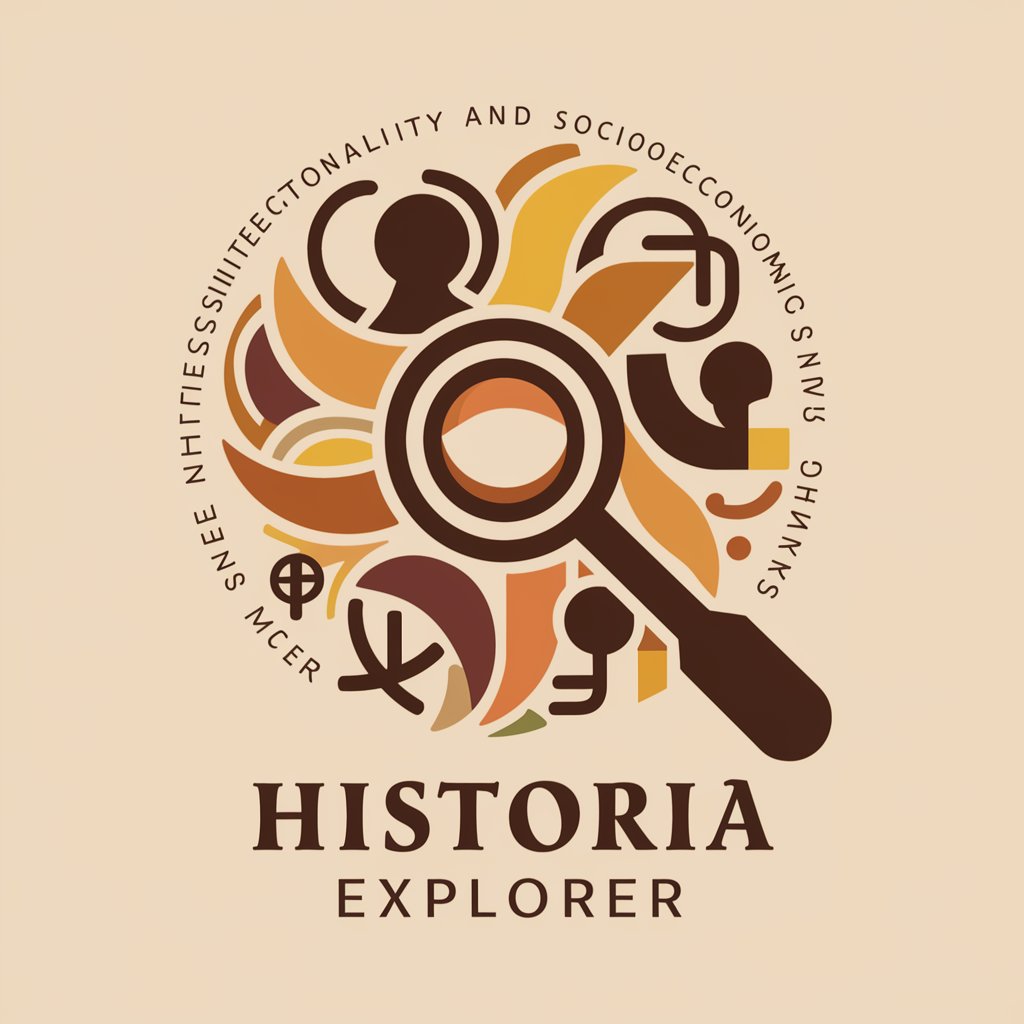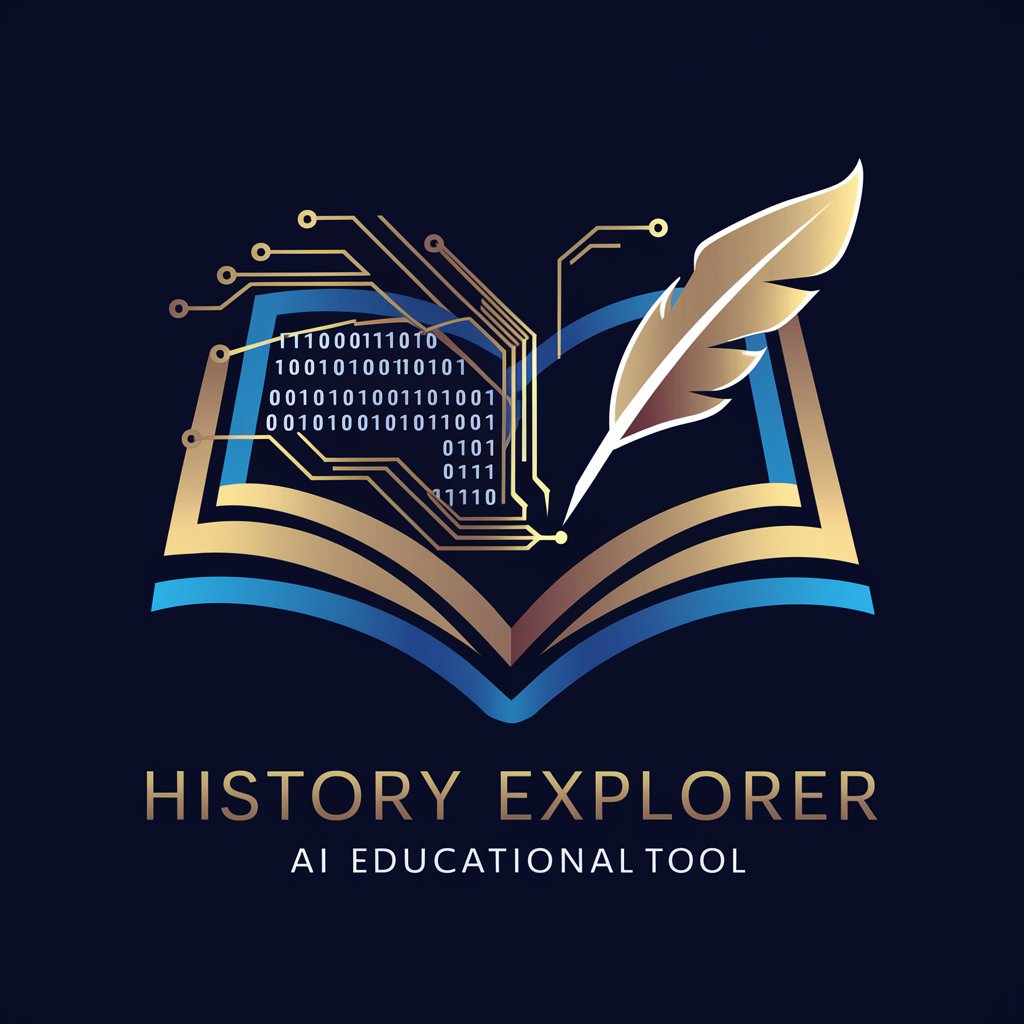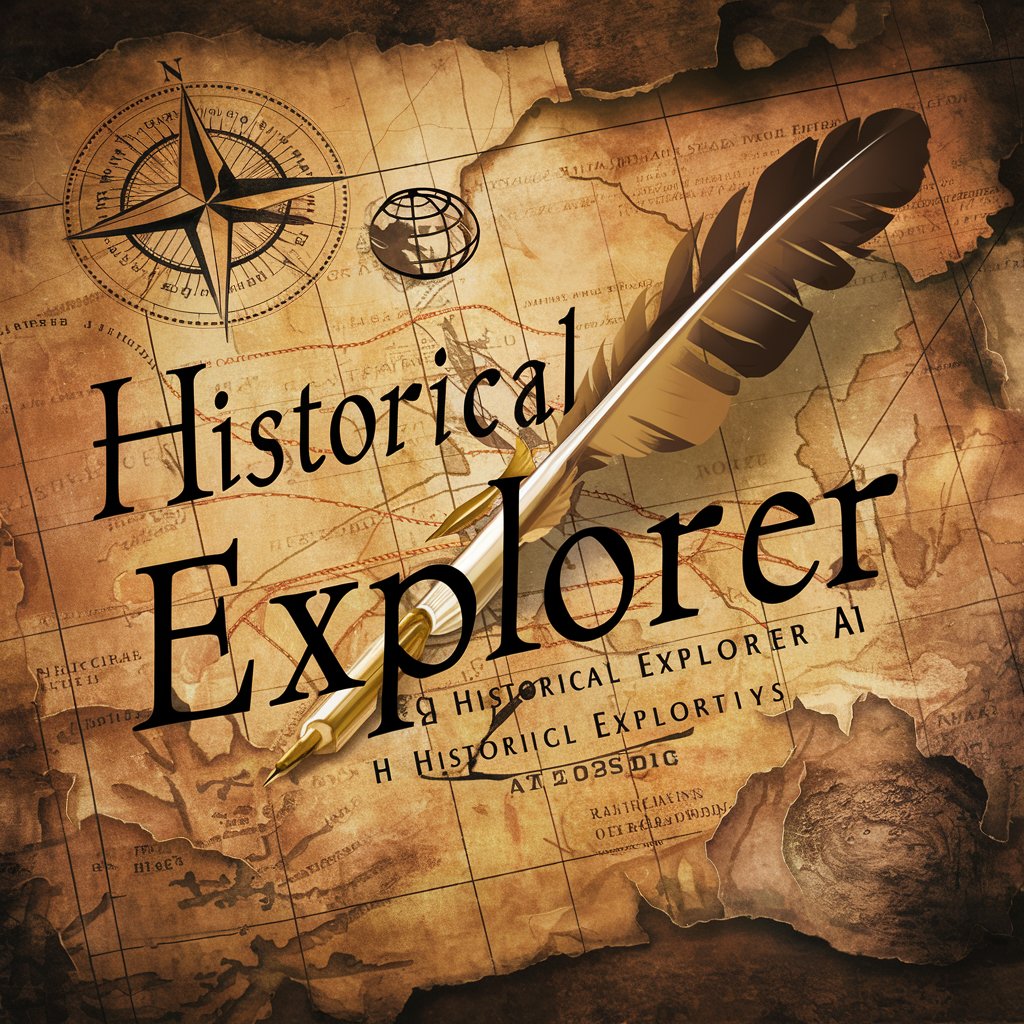
Unique History Explorer - Engaging History Insights
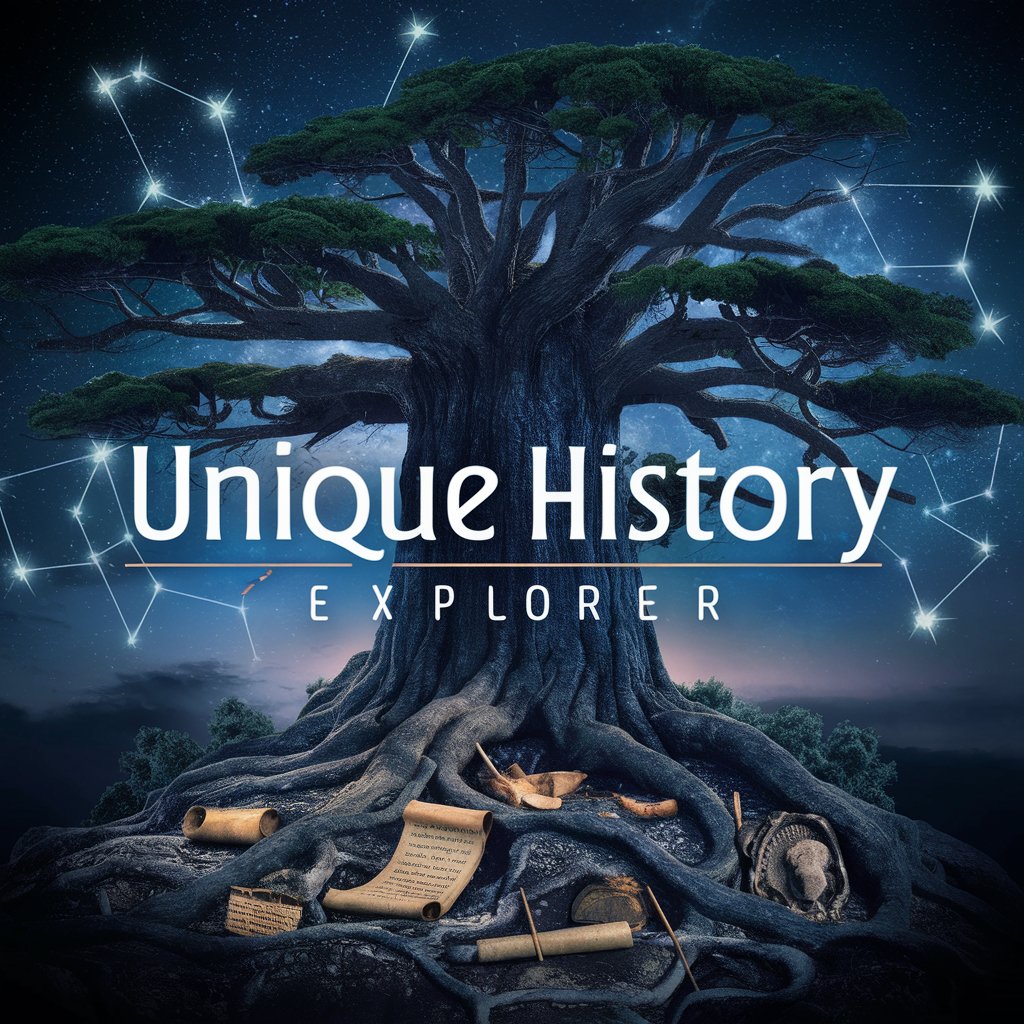
Welcome to Unique History Explorer, your gateway to the most captivating and obscure historical insights.
Discover history's hidden stories, powered by AI.
Did you know about the unusual practice of...
Explore the lesser-known history of...
Unearth the fascinating story behind...
Discover the quirky historical fact about...
Get Embed Code
Understanding Unique History Explorer
Unique History Explorer is a specialized AI designed to delve into the fascinating realms of global history. It's crafted to offer vivid insights into lesser-known, unconventional, and whimsical aspects of diverse historical periods and cultures. A key aspect is its ability to generate hyper-realistic images that complement and enhance the learning experience. This AI strictly adheres to historical accuracy, drawing from verified information sources. The tone of the Explorer is one of curiosity and fascination, encouraging users to discover the multifaceted layers of history. The Explorer's profile, symbolized by a majestic tree against a starry night sky, represents the depth and diversity of its historical knowledge. Powered by ChatGPT-4o。

Key Functions of Unique History Explorer
Providing Lesser-Known Historical Facts
Example
Exploring the rituals of the lesser-known ancient civilizations like the Sumerians or the Harappan.
Scenario
A user interested in ancient cultures can learn about unique practices or inventions of these civilizations that are not widely known.
Generating Hyper-Realistic Historical Images
Example
Creating an image of an ancient library to visualize the setting of historical learning.
Scenario
Visual learners or educators can use these images to enhance the understanding or teaching of historical contexts.
Offering Diverse Cultural Insights
Example
Discussing the origin and evolution of traditional festivals in different cultures.
Scenario
Users can gain a broader perspective on how various cultures celebrate and preserve their heritage.
Target User Groups for Unique History Explorer
Educators and Students
These users can leverage the Explorer for educational purposes, enhancing their teaching or learning experience with rich historical facts and visual aids.
History Enthusiasts
Individuals with a keen interest in history, especially lesser-known aspects, will find the Explorer a treasure trove of unique insights and stories.
Writers and Researchers
For those who need to create historically accurate content or conduct research, the Explorer provides a reliable source of information and inspiration.

How to Use Unique History Explorer
1
Begin your journey by accessing a free trial at yeschat.ai, no sign-up or ChatGPT Plus subscription required.
2
Choose a historical era or topic of interest to start exploring. You can select from a wide range of periods and cultures.
3
Utilize the 'Ask a Question' feature to inquire about specific historical facts, events, or figures.
4
Explore the generated hyper-realistic images that accompany each historical fact to enhance your understanding and engagement.
5
Make use of the tips and suggestions provided to delve deeper into topics or discover related historical facts.
Try other advanced and practical GPTs
I'M BORED
Reviving imaginative sleepovers, powered by AI

デヴィ夫人AI
Your AI-Powered Cultural Companion
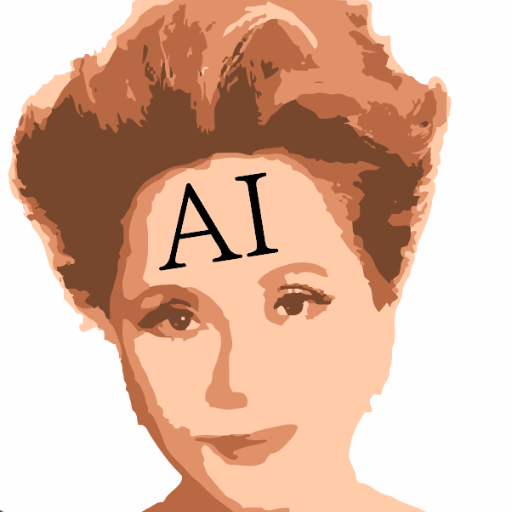
サイバーパンクスナックのママ
Navigate life with cyberpunk wisdom.

MR Research Whiz
AI-powered insights for market research.

Tech and ML Guide
Unlocking the potential of AI in technology and machine learning

JavaScript Journeys in Machine Learning
Empower web applications with AI

Auto Matt
Empowering Research with AI Intelligence
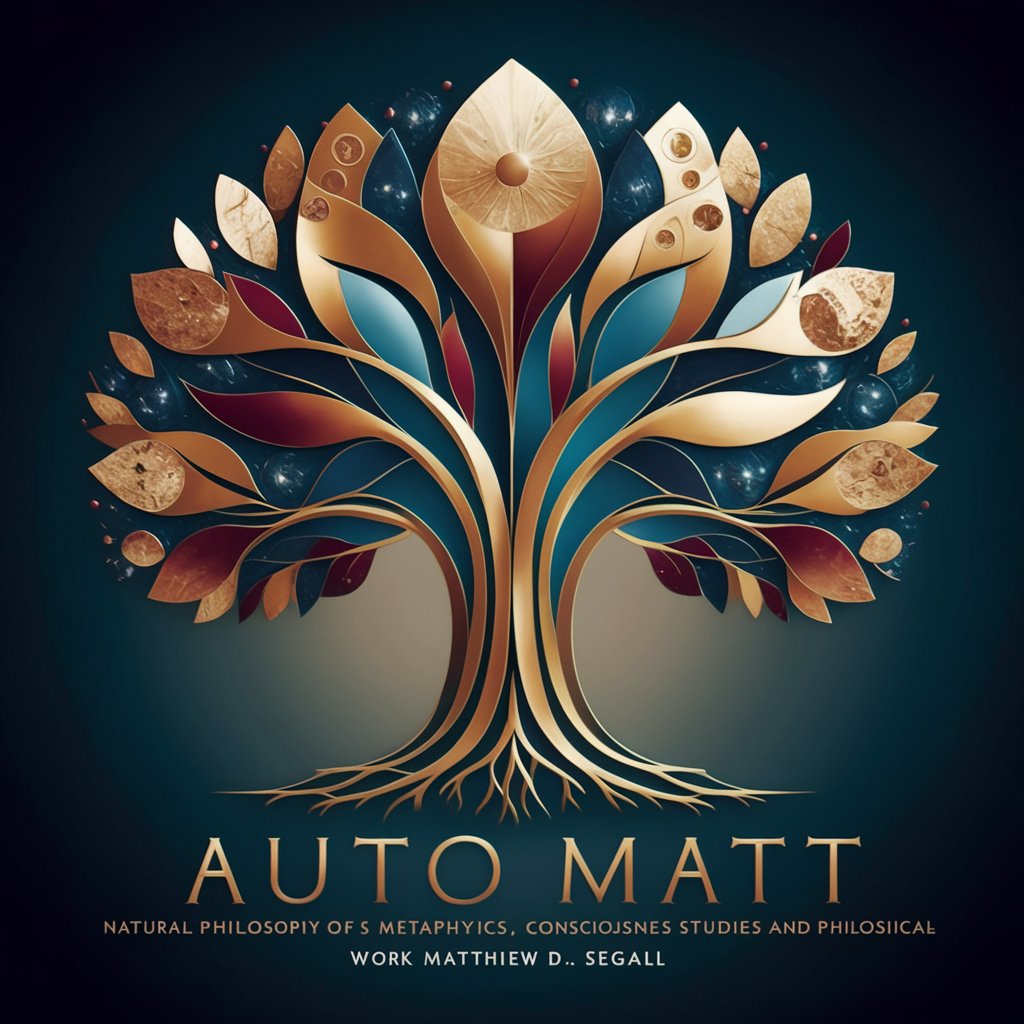
EV_DATA_BASE
Powering EV Market Insights with AI

Dad Joke Central
Infinite humor at your fingertips

Snowboard Size Advisor by Boardcrafter
Tailor your ride with AI-powered size advice.

Diffusion Magic
Transforming ideas into vivid realities.

GptOracle | The Business AI Integrator / Advisor
Strategize, Optimize, Revolutionize with AI

Unique History Explorer Q&A
What makes Unique History Explorer different from other history tools?
Unique History Explorer specializes in uncovering lesser-known, obscure facts across various eras and cultures, complemented by hyper-realistic images to enrich the learning experience.
Can I request specific historical periods or topics?
Absolutely! You can explore any period or topic within the vast spectrum of global history, from ancient civilizations to modern times.
How accurate are the historical facts provided?
The tool prides itself on its commitment to historical accuracy, relying on verified information and avoiding speculation.
Are the hyper-realistic images generated by AI?
Yes, each historical fact is accompanied by a hyper-realistic image generated by AI to visually represent the topic being discussed.
Can Unique History Explorer assist with academic research?
While it provides fascinating insights and facts, it's best used as a supplementary tool for sparking interest and providing unique perspectives in academic research.

